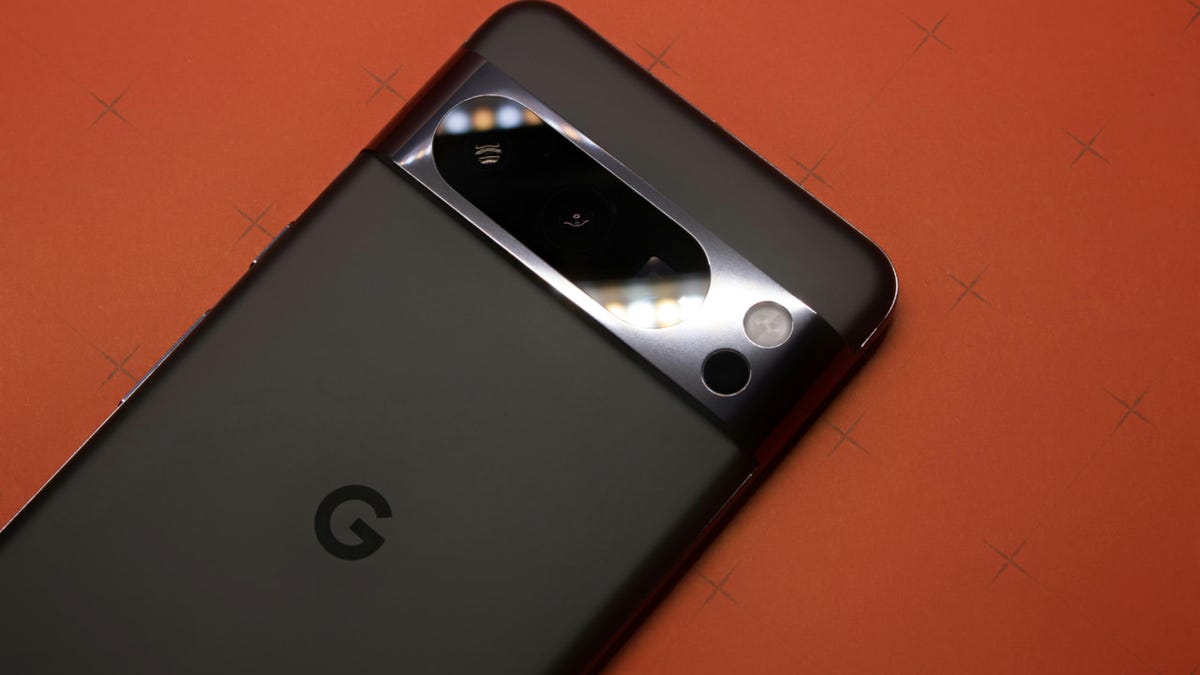NutNow you can listen to the Fox News items!
Piracy continues to evolve, like any other profession. Cybercrimers always improve their tools, especially malicious software, to find new ways to scam people and steal data or money. The old tricks are no longer working. Basic phishing rarely deceives anyone twice, so hackers are constantly looking for new ways to enter.
They are based on anything that attracts attention and does not suspect, things like social media ads, fake bank applications or updates that seem completely normal. One of the most growing threats in this space is crocodilus.
For the first time detected in early 2025, this Android Banking Trojan takes care of the list of contacts so that their scams may seem more legitimate and difficult to detect.
Sign up -you do to my free cyberguy report
Get my best technological tips, urgent security alerts and exclusive offers delivered directly to your inbox. In addition, you will get instantaneous access to my definitive scam survival guide, free when you unite.
Android phone (Kurt “Cyberguy” Knutsson)
Crocodilus Malware: What should Android users know now
It Crocodilus malware Threatened cybersecurity researchers were first documented by the end of March 2025. They emphasized their extensive data theft and remote control.
Cocodilus uses Facebook to infect devices. It appears in ads that look normal, but once click, the malicious software is installed on your device. In some cases, it imitated banking and e -commerce applications in Poland, promising free users in exchange for downloading an application. The link led to a fake place that delivered the malicious software. Although the announcement was only live for a few hours, it still reached thousands of users, most of whom were over 35 years old, a group is more likely to have money in the bank.
Smaller but growing campaigns have also been reported in the United States, where Cocodilus disguised itself as a crypt portfolio tools, mining applications and financial services. These fake applications are often distributed through Phishing social media ads or links, aiming at Android users who are less likely to question a “legitimate” financial application. Although not yet widespread, the presence of crocodil in the United States emphasizes its global scope and quick evolving tactics.
Android Security updates Outsmart’s scams and protects your privacy
The Trojan has also been located in Spain, where he disguised himself as a browser update, aimed at almost all major Spanish banks. In Turkey, it was proposed as an online casino application. And the threat does not stop here.
One of Cocodilus’s main concerns is his ability to add false contacts to your phone, inserting entries such as “bank support” on your contact list. Therefore, if an attacker calls to pretend to be from your bank, the phone may not be marked because it seems to be a trusted number, making social engineering scams much more convincing.
The latest version also includes a more advanced seed collector, especially dangerous for cryptocurrency users. Crocodilus monitors the screen and uses the matching of patterns to detect and extract sensitive data, such as private keys or recovery phrases, all before sending the attacker quietly.

Illustration of a hacker at work (Kurt “Cyberguy” Knutsson)
Mass breach of data exposes 184 million passwords and login starts
As Cocodilus indicates the future of Mobile Malware Threats
Crocodilus shows us how the next wave of moving threats may seem. Use real ads to enter the phone. It combines with your digital life in ways that feel familiar. You don’t need striking tricks to succeed. Just like to look trustworthy.
This type of malicious software is designed for scale. It is aimed at large groups, works in different regions and updated rapidly. It may pretend to be a bank, a purchase app or even something harmless as an update of the browser. The frightening part is the normal thing that looks like everything. People do not expect something so malicious to hide -inside something that looks like a gift.
Crocodilus creators understand how people think and act online. They use this knowledge to create tools that work quietly and effectively. And they don’t work alone. This type of operation probably involves a network of developers, advertisers and distributors who work together.
What is artificial intelligence (AI)?

A woman who works on her laptop with your phone nearby (Kurt “Cyberguy” Knutsson)
The human resources sign
7 expert tips to protect your crocodilus malware android
1. Avoid unloading of unknown bulletins or sources: Crocodilus often spreads for ads on social media platforms like Facebook. These ads promote applications that look like banking tools, e -commerce platforms or even crypt portfolios. If click and install -you are, you may download malicious software without knowing it. Always look for applications directly to trusted platforms such as Google Play Store. Do not install anything from random links, especially those that are shared through unknown ads, messages or websites.
2. Avoid suspicious links and install strong antivirus protection: Crocodilus propagates through misleading ads and fake applications links. These may seem like legitimate bank tools, crypt applications or browser updates. Clicking on them, you can install malicious software quietly abduct your contacts, supervise the screen or steal your login credentials. To keep it safe, avoid clicking on the links of unknown sources, especially those that promise rewards or warn urgent problems. The installation of strong antivirus software to the Android device adds another layer of protection. You can scan downloads, block malicious behavior and warn -you do about phishing attempts before they become a bigger problem. Get my options for the best antivirus 2025 protection winners for your Windows, Mac, Android and iOS devices.
3. Review application permissions carefully before and after installation: Before installing an app, take a moment to look at the permits you ask. If a purchase app wants to access your contacts, messages or screen, this is a red flag. After installing it, go to the phone settings and check what the application really has. Malicious software like Cocodilus is based on overcoming permits to steal data and get control. If something unnecessary, revoke access or completely uninstall the application.
4. Keep updated the Android device at all times: Safety patches are released regularly to block known vulnerabilities. Crocodilus is designed to take advantage of obsolete systems and to avoid newer Android restrictions. By Update by phone and applications Regularly, reduce the possibilities that the malware sinks. Set your device to install updates automatically when possible and manually check from time to time if you are not sure.
5. Think of using a data control or data control service: Although not a direct defense against malicious software, data removal services can help minimize damage if information has already been filtered or sold. These services control your personal data on the dark web and offer guidance if your credentials have committed. In a case like Cocodilus, where malicious software can harvest and transmit bank information or crypto keys, knowing your exposure to data can help you act before the scammers do it. Check out my best options for data removal services here.
Get free scan to find out if your personal information is already on the web
6. Light Google Play Protect: Google Play Protect is an integrated security feature on Android phones that scan your applications for anything suspicious. To keep it protected, make sure it is activated. You can check it by opening the Play Store, touching the profile icon and selecting Play Protect. From here, you can see if it is active and run a manual examination of all the installed applications. Although everything may not be taken, especially threats from outside the game store, it is still a major layer of important defense against harmful applications like Cocodilus.
7. Be skeptical of unknown contacts or urgent messages: One of the new tricks used by Cocodilus is to modify your contacts list. Can add false entries that look like customer or bank support numbers. So, if you receive a “bank support” call, it may not be real. Always verify telephone numbers using websites or official documents. The same applies to the messages that ask for personal data or urgent session. If in doubt, do not answer or click any link. Please contact your bank or service provider directly.
Don’t click this link! How to detect and prevent phishing attacks on the inbox
Kurt’s Key Takeaway
Crocodilus is one of the most advanced Android Bank Trojans seen so far. It is propagated through social media ads, hides in applications that look real and collect sensitive data such as bank passwords and Crypto seed sentences. You can also add fake contacts to the phone to deceive it during scam calls. If you use Android, avoid downloading applications of links in ads or messages. Install only sources of trust sources such as Google Play Store. Keep your phone updated and take care of whether something looks too good to be true because it probably is.
Click here to get the Fox News app
Who should be responsible when malicious software like crocodil propagates for platforms like Facebook? Do -us to know by writing -us to Cyberguy.com/contact.
For more information on my technology tips Anbd Security Alerts, Subscribe -Free Cyberguy Free Report Bulletin Cyberguy.com/newsletter
Ask to Kurt or Fer -to know what stories you would like to cover
Follow Kurt in their social channels
Answers to Cyberguy Questions Most Failed:
New of Kurt:
Copyright 2025 cyberguy.com. All rights reserved.
#Android #malicious #software #raised #false #contacts #steal #personal #data
Image Source : www.foxnews.com
